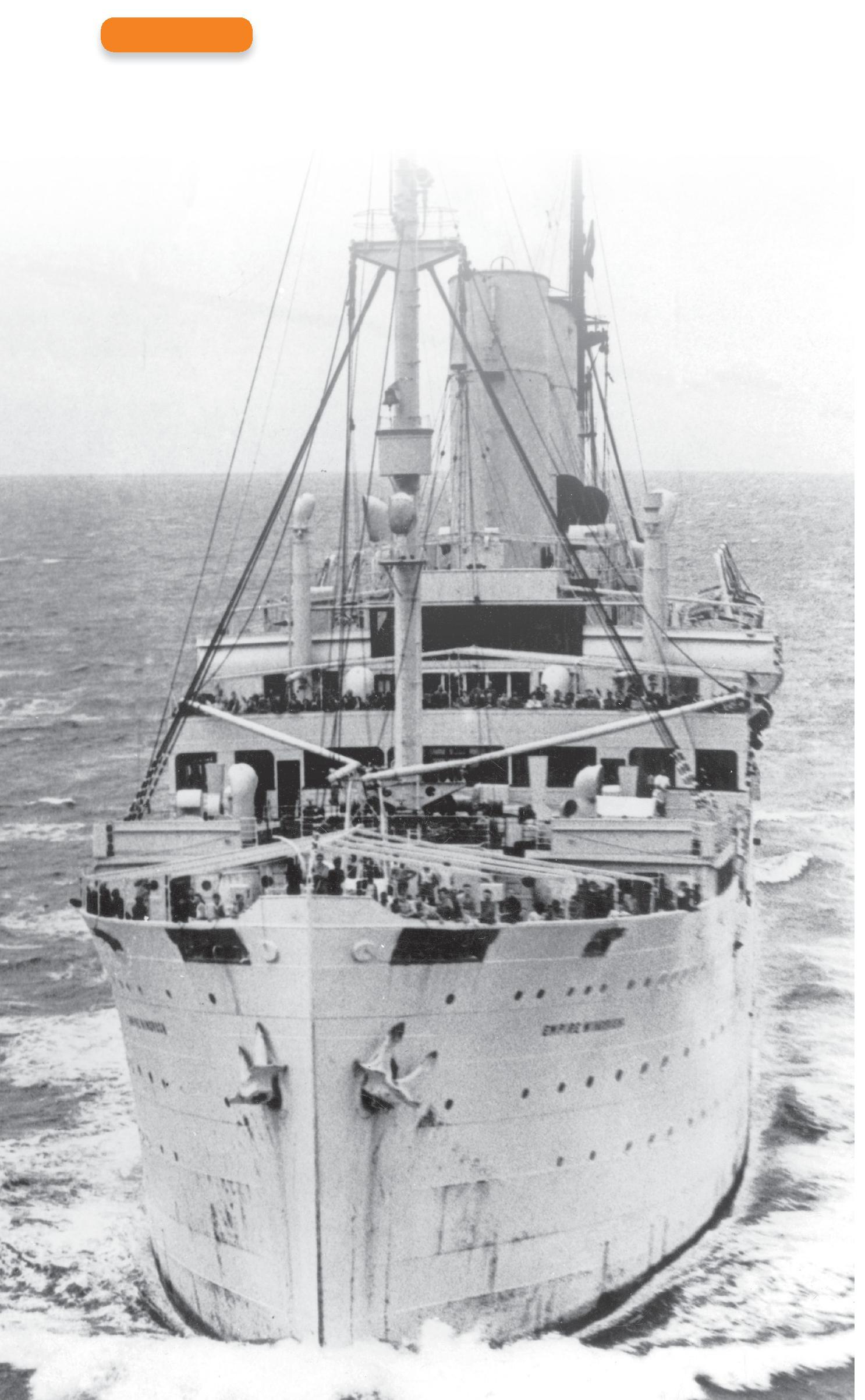
On 22 June 1948 the Empire Windrush arrived at Tilbury Docks in London. The 492 passengers from the Caribbean had paid £28 10s for their passage and their arrival attracted widespread media interest. The Empire Windrush marked the beginning of the first black mass immigration to Britain. It started slowly with fewer than a thousand migrants in each of the first few years but accelerated dramatically in the late 1950s with a peak of 66,300 arriving from the Caribbean in 1961 before numbers fell back to average fewer than 10,000 a year. Apart from a small minority, they were not in any sense ‘brought over’ to fill jobs, but they came freely, without work, in the hope of a better future.
When an advert for passage from Jamaica to London on the Windrush appeared in the Daily Gleaner in May 1948, demand was strong. For many of these pioneering migrants, prospects were bleak. Unemployment was rife and, for those lucky enough to have a full-time job in agriculture, long days of toil were rewarded with pay that was 20 times lower than the average wage in Britain.
Your organisation does not have access to this article.
Sign up today to give your students the edge they need to achieve their best grades with subject expertise
Subscribe




